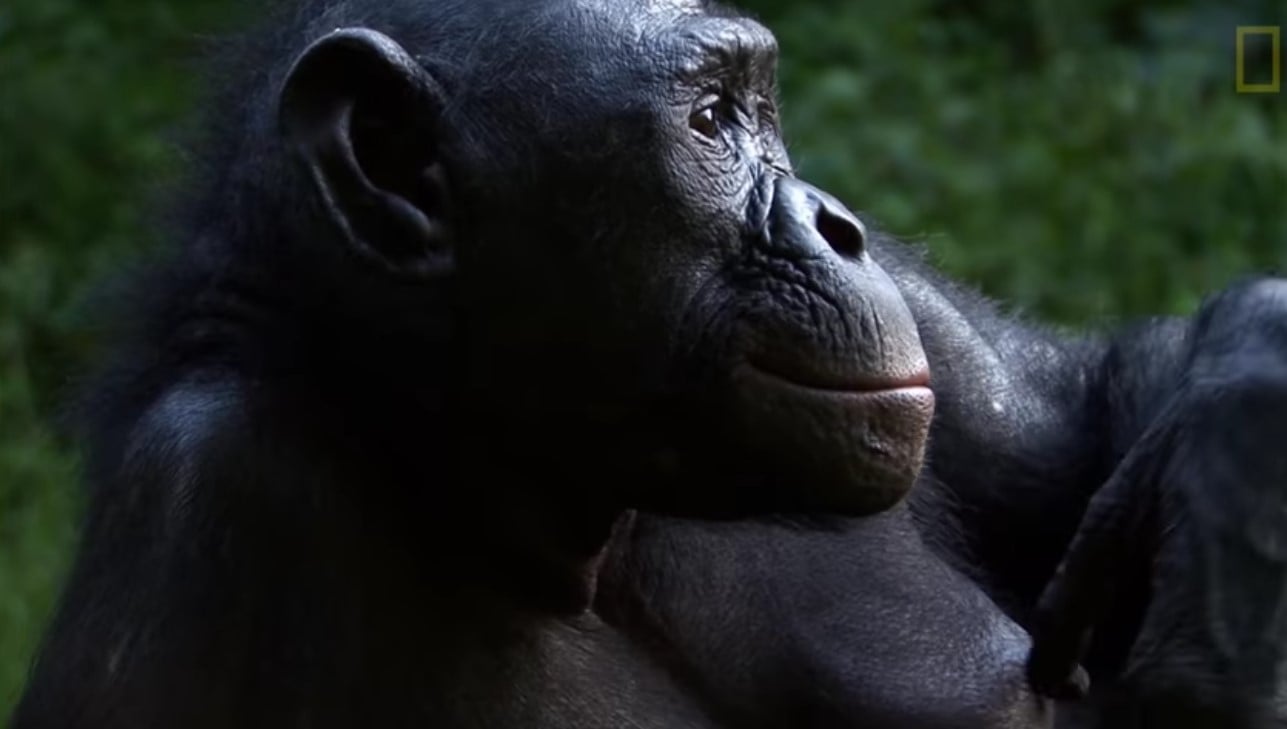Although humans have close ties evolutionarily to apes, it appears as if there are some stark differences in how we approach social interactions. New research suggests that bonobos prefer social dominance rather than “helpers” that are valued in human society.
Dominant Bonobos
The Scientific American reports that developmental psychologists have found that by three month of age, human babies can tell the difference between friendly people and mean people – and that they seem to prefer helpful individuals. In a discovery that shakes up our current knowledge of apes, bonobos seem to prefer the powerful and aggressive rather than those who help out.
Duke evolutionary anthropologist Christopher Krupenye led the study, and explained the scientific community’s previous understanding of apes and how they interact with one another.
“Of our two closest relatives, chimps and bonobos, [bonobos] are the ones known to show less extreme aggression. They’re socially tolerant in food settings, and they share food and cooperate in ways chimpanzees might not… So we thought if either of them are likely to share with humans this motivation to prefer helpers, it may be bonobos.”
In a collaboration with fellow Duke University anthropologist Brian Hare, Krupenye ran tests on 43 bonobos currently living in a sanctuary located in the Democratic Republic of the Congo. The experiments were designed to see if apes exhibited similar behavior to human infants – preferring helpers rather than aggressive members of their society.
The Experiments and Results
One of the experiments showed 24 bonobos a series of cartoons involving different animated shapes. The video showed a circle trying to ascend a hill. In one video, the circle is helped up the hill by a triangle. Conversely, the other cartoon shows a square preventing the circle from reaching its destination. The bonobos were then offered two identical piece of fruit, with one located under a paper cut out that represented the “helper” triangle, and the other one representing the “aggressive” square. The study found that these apes could distinguish between the “helper” and “hinderer,” but unlike infants, the apes chose the square.
Another experiment showed the bonobos two different scenarios: one in which a lost toy was retrieved by a human helper, and another in which a human stole a toy. Similarly to the first experiment, the bonobos chose the food from the aggressive human rather than the one that assisted them.
All successive experiments seemed to show the same result: bonobos seem to prefer dominant members rather than helpers. Because apes share so many similarities to humans, it’s sometimes easy to assume that their behaviors are motivated in ways similar to our own. This study suggests that the ape’s concept of morality and what is “good” may be completely different than our own. Something that we see as antisocial or dangerous demonstrates dominance in a community of bonobos – something that is appreciated and celebrated more than the weak members – even if it disadvantages others.
“Right now, we can say we see that bonobos and human infants show opposite preferences,” said Krupenye. More research is necessary – including with relative chimpanzees – to better understand the motivations of ape society.





